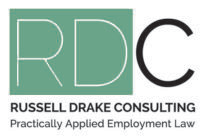In our last newsletter, we outlined the details of the recently passed Fair Pay Agreements legislation (FPA). Since the release of that newsletter, further information has been provided to keep us informed on what is being deemed ‘one of the most significant changes to NZ employment legislation’.
Given the significance of this legislative change, and the uncertainty as to who this is going to impact, it is our objective to ensure that all of our clients remain fully informed on the development of the FPA process.
The Employers and Manufacturers Association (EMA) will likely be one of the key employer bargaining agents, along with its regional network partners – Business Central, Canterbury Employers’ Chamber of Commerce and Business South, with recently released information from the EMA confirming the following points.
Although the legislation comes into effect as of 1 December 2022, there are still a number of significant steps that need to be completed before a FPA can be formed, including:
Legitimate Bargaining Agents
The legislation requires nominated Bargaining Agents to ensure they change their rules/constitutions to enable them to provide representation to both members and non-members. Currently, Union’s are the only group able to provide representation to their members. The constitution of the Unions, who generally operate as Incorporated Societies, will therefore need to change their constitutions to enable them to provide representation to non-union members as well. Similarly, the constitution of organisations such as the EMA enable them only to provide representation to EMA members. If the EMA is to become a Bargaining Agent (to be known as an “Eligible Employer Association”) for an industry group, the EMA’s constitution will need to be changed to enable non-member representation. While this sounds like a simple process the regulations from the Government on the details of the required changes do not appear to have been drafted yet, preventing any of the intended Bargaining Agents from being compliant. A Union cannot therefore legally initiate bargaining for an FPA until this important step has been completed.
Bargaining Process
There will be a formal process by which initiation for an FPA must occur within, and then further steps to be undertaken with respect to the bargaining process and the final decision or ratification requirements. These steps are to be set out within the currently undrafted Regulations with it being anticipated that these Regulations will not be released until the first quarter of 2023. Progressive on FPA’s will therefore be influenced by the pace at which the required regulatory framework is prepared and available to the parties.
There are reports that the Union’s have already initiated bargaining for an FPA within the retail sector, however where the required bargaining agent protocols have not been completed, and the regulatory bargaining framework has not yet been released, any current actions by the union’s may be deemed to be slightly premature.
Interface with current employment agreements
One of the most important components of the FPA legislation is the clarification of how an FPA will interface with an existing Collective Agreement or an Individual Employment Agreement. As any FPA agreement negotiated will provide minimum pay and employment conditions for all workers who fall under the coverage clause, whether the employer or the employer wish to or not:
- If the terms of an FPA are more favourable than the terms of an existing employment agreement (collective or individual), the FPA terms will apply.
- If an existing employee agreement (collective or individual) is more favourable than the terms of an FPA, the existing agreement provisions will continue to apply.
This is likely to create significant administrative difficulties for covered employers who will be required to assess every covered employee’s current arrangement against the applicable FPA to determine what provisions will apply or take precedence.
There may also be situations when it is not entirely clear whether a term in the FPA is “more favourable” than the equivalent term in an IEA or CEA. Changes to an employee’s duties will also have an impact, as this will require a reassessment of the contractual terms applying to the employee, as this may inadvertently bring them into coverage under a FPA – only 25% of the employee’s duties need to sit under the FPA coverage clause to mean the FPA applies to them in its entirety.
There is still a lot of water to go under the bridge before we see the first FPA come into place however we will aim to keep you as well informed as possible as further information comes available.
In the interim, if you have any specific questions regarding FPA’s or involvements with Unions please feel free to contact us directly for assistance on 07 8380018.

